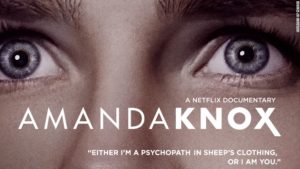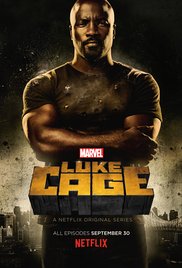Results for “westworld” 9 found
*Westworld* as Haitian Hegelian instantiation
I don’t want to give you spoilers, so I’ll put key points behind links — read them at your peril. The ending of last night’s finale reminded me of this historical episode in 1804. Bernard reminds me of this Haitian figure, this fellow too. Anthony Hopkins is an updated version of the impresario from this 1932 movie. As for the Hosts:
Haitian slaves believed that dying would release them back to lan guinée, literally Guinea, or Africa in general, a kind of afterlife where they could be free. Though suicide was common among slaves, those who took their own lives wouldn’t be allowed to return to lan guinée. Instead, they’d be condemned to skulk the Hispaniola plantations for eternity, an undead slave at once denied their own bodies and yet trapped inside them—a soulless zombie.
Zombies can change their “status” through a number of means. Don’t show them the ocean!
And that symbol everyone is always asking about and trying to discern the meaning of? That is a vevé, obviously.
And to frame the whole thing, here is Hegel on the master-slave dialectic.
What I’ve Been Watching: Knox, Cage, Westworld
Amanda Knox on Netflix is a shorter version of Making a Murderer. Shorter because there isn’t much evidence that Knox had anything to do with the murder of her  housemate. The documentary has extensive interviews with the lead investigator, a blowhard who likens himself to Sherlock Holmes but whose idea of deduction is that the murderer must have been a woman because the body was covered up. Surprisingly, the one clear sociopath isn’t the actual killer but the journalist whose lurid dispatches turned a tragic but ordinary murder into a witch hunt–a real Nightcrawler. Throw in some nationalism on both the Italian and U.S. sides and it’s not surprising that justice went awry. Trump has a cameo.
housemate. The documentary has extensive interviews with the lead investigator, a blowhard who likens himself to Sherlock Holmes but whose idea of deduction is that the murderer must have been a woman because the body was covered up. Surprisingly, the one clear sociopath isn’t the actual killer but the journalist whose lurid dispatches turned a tragic but ordinary murder into a witch hunt–a real Nightcrawler. Throw in some nationalism on both the Italian and U.S. sides and it’s not surprising that justice went awry. Trump has a cameo.
Luke Cage, also on Netflix, is the latest Marvel superhero story set in the same New York universe as Daredevil and Jessica Jones. Harlem is lovingly portrayed and the barbershop name dropping–Walter Mosley, Zora Neal Hurston, Crispus Attucks–and  various basketball, jazz, and rap references adds color. The central conflict, however, is flat. Super-strong, well-nigh invulnerable Cage is not evenly-matched by drug dealer-businessman Cottonmouth. Despite a watchable performance by Mahershala Ali, Cottonmouth is no Kingpin. Vincent D’Onofrio’s Kingpin had Shakespearean intensity, depth, and the physical power to battle a super-hero. Indeed, one of the things that made Daredevil special was that you could see his exhaustion and pain in every battle. Similarly, Jessica Jones’s nemesis, Kilgrave, was one of the most horrific characters ever seen on television (in a great understated performance by David Tennant) and Kilgrave had Jones under his thumb for much of the season. Super heroes need super villains. To be sure, there is pickup in the second half of Luke Cage, but it takes a long time to develop.
various basketball, jazz, and rap references adds color. The central conflict, however, is flat. Super-strong, well-nigh invulnerable Cage is not evenly-matched by drug dealer-businessman Cottonmouth. Despite a watchable performance by Mahershala Ali, Cottonmouth is no Kingpin. Vincent D’Onofrio’s Kingpin had Shakespearean intensity, depth, and the physical power to battle a super-hero. Indeed, one of the things that made Daredevil special was that you could see his exhaustion and pain in every battle. Similarly, Jessica Jones’s nemesis, Kilgrave, was one of the most horrific characters ever seen on television (in a great understated performance by David Tennant) and Kilgrave had Jones under his thumb for much of the season. Super heroes need super villains. To be sure, there is pickup in the second half of Luke Cage, but it takes a long time to develop.
Westworld (HBO)–this is the one that you must watch. The first two episodes have been remarkable. Every scene has something to see or to think about. Audience expectations are continually subverted. The cinematography is stunning.
One characters says “That’s what I love about this place all the secrets, all the little things I never noticed even after all these years. You know why this place beats the real world…in here every det ail adds up to something.” Very meta. The shots also speak to the structure of the plot. Look at this amazing shot of the control building–levels of meaning.
ail adds up to something.” Very meta. The shots also speak to the structure of the plot. Look at this amazing shot of the control building–levels of meaning.
It does not pass notice that it’s bright and shiny on top but the lower levels–the subconscious–are dark, moist, subterranean. We are told that WestWorld is a maze, a maze literally and figuratively, in our heads.
Westworld also challenges us with questions. Who are we? If we visited Westworld would we be the good guys or the bad guys? How many of us secretly harbor the desire to do evil and are restrained only by fear of punishment? What kind of Zimbardo experiment is Westworld?
Or are we the operators of Westworld who treat other people (?) as mere means and not as ends in themselves? Parts of Westworld look like an abattoir and from one perspective there are mass rapes.
Or are we the robots, living in a simulation, a reality of someone else’s construction? And what is going on with the corporation? The ultimate god?
The executive producer of Westworld is Jonathan Nolan, brother of Christopher, and writer or co-writer of Memento, The Prestige, The Dark Night and Interstellar.
We are only two episodes in but so far this is thrilling art in action.
*The Creator* (movie review with spoilers)
This movie was deeper and more philosophical than I was expecting. Imagine a Buddhism that decides the AIs represent the true renunciation of desire, and thus embody the Buddhist ideal. Globally, the AIs ally themselves with the Buddhist nations, now unified under a “Republic of New Asia” banner. Mostly it looks like Vietnam (water buffalo), until snow-capped mountains are needed near the end.
The Buddhists considers the AIs to be kinder than humans. America, however, tries to destroy them all, as part of a misguided quest to bomb the proverbial data centers.
You will find visual quotations from A.I., Robocop, Terminator II, Kundun, Star Wars, Blade Runner, Apocalypse Now, Firestarter, Westworld, Lost in Space, the Abraham story from Genesis, and more. The special effects were good, and surprisingly understated compared to the usual excess. Scientific consistency, however, you will not find.
In this movie it is Eliezer and the Americans who are the bad guys. I was surprised to see Hollywood make that move.
From the director of Rogue One, a good sign of course, and the soundtrack is by Hans Zimmer. This movie is not perfect, but I am very glad I saw it. The U.S. reviews for it are unreliable, the BBC did OK, Vulture too.
What to Watch
The Rehearsal (HBO): The new Nathan Fielder show has a strange premise. Fielder helps a real person rehearse an upcoming event that they are worried about. In the first episode, Kor has told a friend he has a MA when in fact he has a BA. The fib has tormented him for years. For the rehearsal, Fielder builds a life-sized replica of Kor’s favorite bar where the confession will take place and he stocks it with actors. The  confession is run through multiple times, ala Groundhog Day. The rehearsal probably cost five hundred thousand or more. The enormous difference between the scale of the rehearsal and the fib is part of the point. Kor is an expert on the trivial. Fielder himself rehearses the rehearsal. It’s ridiculous but why don’t we do this more often? How about rehearsing a pandemic?
confession is run through multiple times, ala Groundhog Day. The rehearsal probably cost five hundred thousand or more. The enormous difference between the scale of the rehearsal and the fib is part of the point. Kor is an expert on the trivial. Fielder himself rehearses the rehearsal. It’s ridiculous but why don’t we do this more often? How about rehearsing a pandemic?
I confess that on first watching I missed that the ending was a rehearsal (like missing the gorrilla on the basketball court). Very meta. Strange but recommended. Tyler would like it and I don’t normally say that kind of thing.
The Old Man (HULU/FX): Jeff Bridges seems miscast as an action hero, even an aging action hero. Yet, the writers turn that to their advantage and make the action scenes slower, more realistic, and more brutal than is typical. The Old Man builds as it slows. Excellent performances from Bridges, John Lithgow and especially Amy Brenneman. A reverse Stockholm effect. The underlying story in which an Afghan warlord seems to control the US government at the very highest level is a bit absurd and there is an entirely unnecessary substory with another old man but the ending is superb, logical, meaningful, and deepening and changing everything that came before.
The Alpinist on Netflix. Recommend to me after I recommended 14 Peaks: Nothing is Impossible but I could only handle 10 minutes. Too scary. Too nuts. Like watching Roman gladiators battling to the death, it just felt wrong to watch. When I came to write this review, I was not surprised to find that Leclerc had perished.
Westworld S4 (HBO): Season One was one of the best seasons of television ever. S2-S4 are a waste of time. S4 I found incomprehensible.
What to Watch
My viewing habits are less hi-brow than Tyler’s, perhaps especially now when I am seeking escape and mind rest. Here’s a few things I have enjoyed and some that I have not.
DEVS on Hulu. If you know what the Everett interpretation is you will probably enjoy this science-fiction drama with big ideas on quantum computing and free will but also enough suspense, action and human relationships to drive the drama forward. From the director of Ex Machina. Sonoya Mizuno steals the show, super charismatic in an off beat way.
Westworld on HBO. A few interesting scenes but mostly disappointing.
Formula 1: Drive to Success on Netflix. I have no real interest in car racing but this documentary–each season is a season–is very well produced. Great shots from within the cars and each episode is tightly crafted, dare I say formulaic, so you want to watch the next. Popcorn but good popcorn. An extended version of Rush. I had no idea a team can cost $300-$500 million a year.
Bosch on Amazon. A police noir set in the real Los Angeles. Bosch is the Sisyphus of police detectives, driven to find justice for the victims but the victims never thank him, justice doesn’t bring them back and each day brings another. A study in character.
Extraction on Netflix. Awful. Brainless. If you want action, watch Fauda about a special Israeli Defense Unit. It’s well done and you will learn something even if what you will learn is how decent people turn into terrorists in an endless cycle of retribution and misery.
Impostors on Neflix: A light con-woman caper. Good for one season but harder to sustain once you’ve seen behind the curtain.
Beforeigners on HBO: My only share with Tyler. I look forward to a second season.
Top Chef on Amazon (I bought the new Season). Still my go to for competence-porn and don’t we all need some of that? Plus makes me look forward to restaurants.
Monday assorted links
1. The More of Everything Problem.
2. RCTs vs. advertising experiments.
3. Facebook is essential to commerce in many emerging economies.
4. Two earlier MR posts on Westworld, including “*Westworld* as Haitian Hegelian Instantiation.”
5. Do Japanese rent-a-families evolve into partial sincerity?
Iron Fist is Weak
Iron Fist, the latest Marvel-Netflix, superhero show, is by far the weakest. [Mild spoilers] The show has been accused of cultural appropriation because it casts a white actor rather than an Asian as a kung-fu superhero (Iron Fist is also white in the comic book but those were unenlightened times). I could live with that if the white actor actually fit the role. Unfortunately, lead actor Finn Jones, whatever his other talents, doesn’t look imposing or powerful. Bruce Lee wasn’t a big guy but he was ripped and you could see at once that despite his charm you didn’t want to mess with this guy. In contrast, Danny Rand, as portrayed by Finn, is a sniveling, crying, whining child who can’t get over the death of his mommy. Despite having supposedly been subjected to beatings, deprivation, and fifteen years of intense martial-arts training, Rand shows none of the hardness that surviving, let alone thriving, in such an environment produces. His fist may be iron but nothing else is.
The fight scenes with Jones are, with one exception, lackluster. The exception is a fight between the Iron and Drunken fist. Drunken Fist (Zhou Cheng) portrayed by Lewis Tan steals the scene. Not only does he clearly give Iron Fist a beat down (despite the nominal outcome) he does so with humor, intelligence and charisma. Watching this scene you cannot help but think, heh, they should have made Lewis Tan the Iron Fist. In fact, Tan was considered for the role! Ironically, after meeting Danny Rand, many characters ask, “Why did this guy get chosen to be the Iron Fist?” It’s a very good question.
https://youtu.be/EB30OV6VXGU
The politics of Iron Fist are also annoying. Danny Rand inherits a powerful firm and in one of his first acts as owner he forces it, over the objections of the board, to sell its new drug at cost. What a sweet guy. Blech! The show does give some pretty good arguments for why this is a bad idea–namely it will reduce R&D and because of subsidies from charities and governments the drug will in any case go to everyone who needs its–so you could give Iron Fist a Straussian reading but I don’t give the writers that much credit.
The most serious failing of Iron Fist is that it breaks the cardinal rule: superheroes need supervillains. Outstanding performances by Vincent D’Onofrio as Kingpin and David Tennant as Kilgrave made for riveting conflict in Daredevil and Jessica Jones respectively. Luke Cage disappointed for its lack of a supervillain. Iron Fist is even worse as it jumps from villain to villain to villain, none of whom are especially super and some of whom are not even all that villainous.
The “hand” are supposed to be the supervillains but they come in (of course) right and left versions. The “left” hand are drug dealers and assassins. But the motives, actions, and consequences of the right hand are difficult to see. Although it’s not clear how the hand operates, their leader makes a case that their actions improve society. The Iron Fist almost joins the hand until he discovers that they have a bunch of computers and surveillance equipment. Then he and sidekick Colleen Wing go on an all out killing spree. What??? I’m no fan of the NSA but surveillance isn’t necessarily evil, Batman also had his sources of information. Iron Fist, however, has difficulty controlling his anger. He acts rashly and with little thought. He sees the world in childish ways. His actions often have unintended consequences and that is why in any battle between the Iron Fist and the invisible Hand, I will take the invisible Hand.
Sunday assorted links
1. The culture that is Dutch first all-avocado restaurant to open in Amsterdam.
2. New blog, Political Arithmetick, high quality on economic stats and their meaning, by Brent Moulton.
3. “One of the Obama administration’s signature efforts in education, which pumped billions of federal dollars into overhauling the nation’s worst schools, failed to produce meaningful results, according to a federal analysis.” Link here. In 2003 I wrote that vouchers are overrated, but now they are definitely underrated.
4. Econofact.org.
5. Japan’s real Westworld theme park, now defunct, based on the 1973 movie, via Yana.
6. New Dani Rodrik paper on global vs. national inequalities (pdf).
Sunday assorted links
1. Good thread on Tillerson. Steve Coll tries to make Tillerson sound bad, I am not sure he succeeds. Here is Rob Stavins on Tillerson. I disagree with what seems to be Trump’s intended Russia policy, but I’ve known plenty of businessmen who have done deals with unpleasant foreign powers and I have never doubted their loyalties to the United States. I see those issues being blurred and smushed together in a new kind of odd reverse McCarthyism.
2. Redux of my earlier post “Modeling Vladimir Putin.”
3. Westworld and the American Civil War.
4. “A person born in 1940 was, by the time he was 30, close to his peak earning point. A person born in 1980, by the time he is 30, is further away from a higher peak earning point. Thus, you are not comparing the same type of birth cohorts.” Link here, and a bit more here.
5. “”I put out early,” she says.” (NYT)
